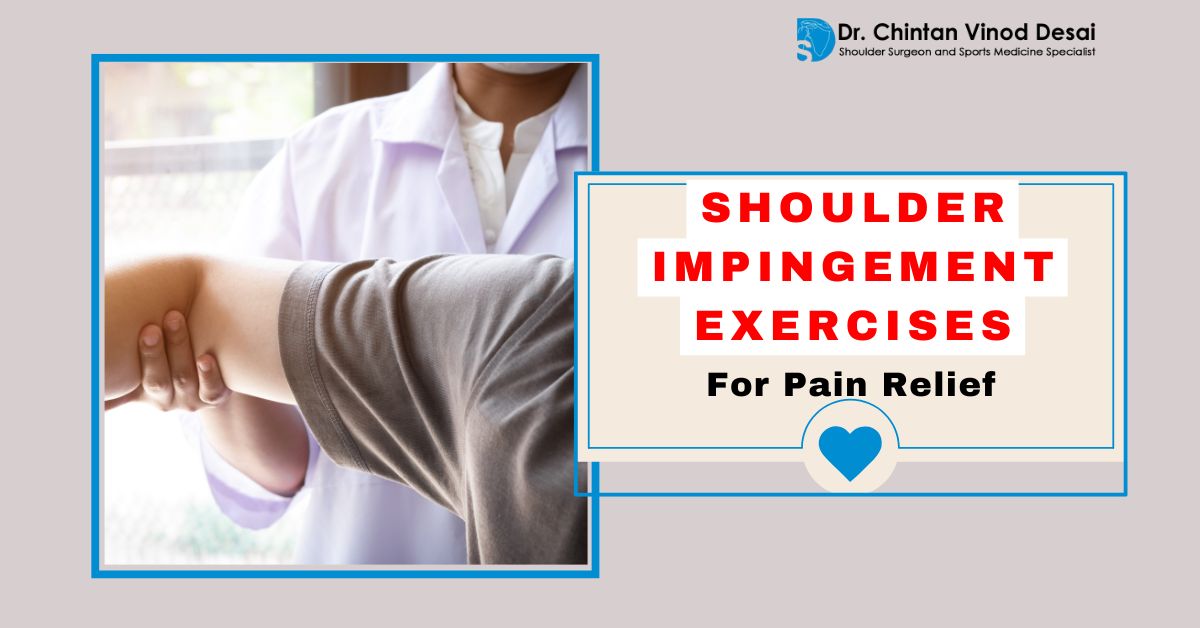Shoulder impingement is a common condition that occurs when the tendons or bursa in the shoulder become irritated or pinched. It can cause significant pain and discomfort, limiting your range of motion and making it difficult to perform daily tasks. Recognizing the signs of shoulder impingement early can help you seek the necessary treatment before the condition worsens. This blog covers when to see a doctor for shoulder impingement, key symptoms to watch for, and available treatment options.
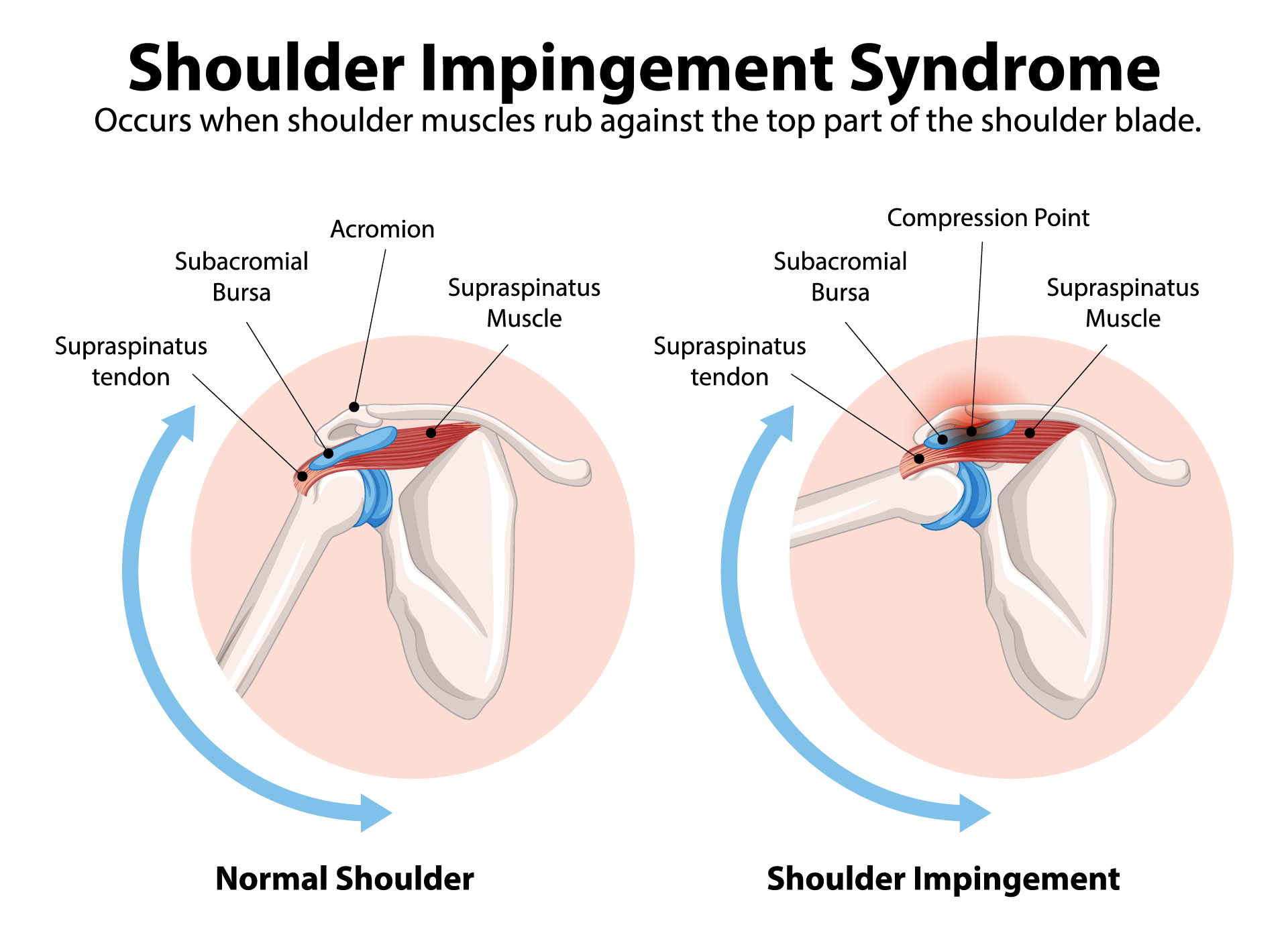
Understanding Shoulder Impingement
Shoulder impingement happens when the rotator cuff tendons or bursa become compressed between the shoulder blade and upper arm bone. This compression can lead to inflammation, pain, and decreased mobility. Without treatment, this can worsen, leading to severe injuries like rotator cuff tears or shoulder arthritis.
Key Signs of Shoulder Impingement
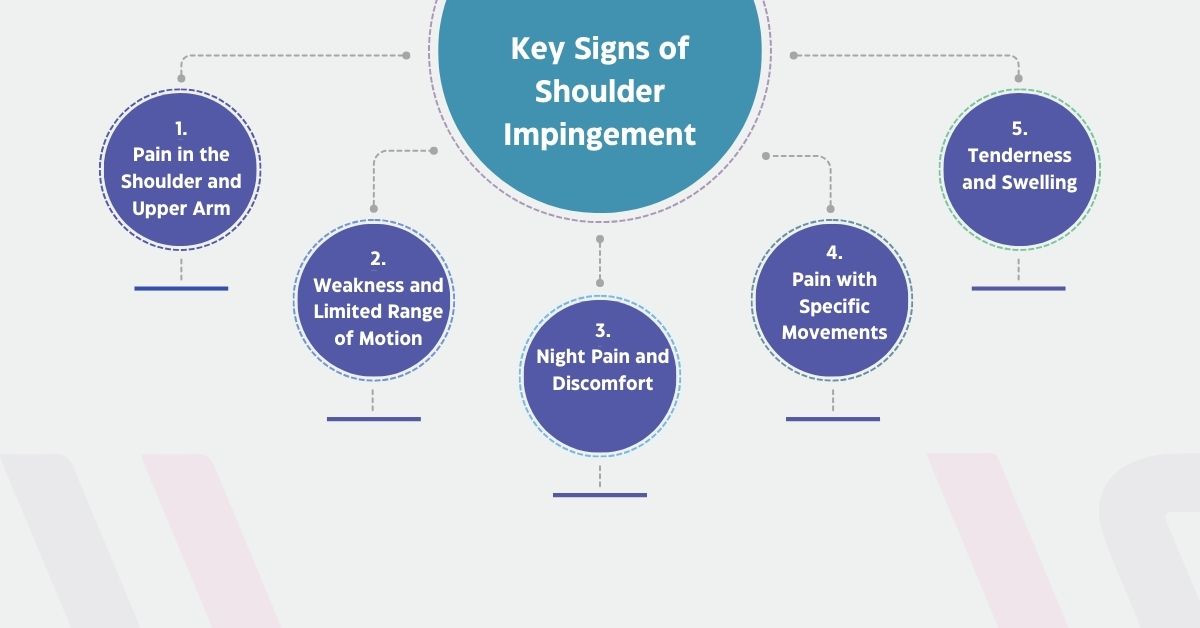
- Pain in the Shoulder and Upper Arm
Shoulder impingement often starts with pain in the front and top of the shoulder. This pain may radiate down the arm, especially when raising the arm overhead. The pain worsens with activities like lifting, reaching, or overhead motions, such as throwing a ball, grabbing items from a shelf, or combing your hair. - Weakness and Limited Range of Motion
People with shoulder impingement often experience weakness in the affected arm. You may find it difficult to lift your arm above your head or move it in certain directions. The pain and discomfort caused by impingement can make these movements challenging, and over time, the range of motion may become more restricted. - Night Pain and Discomfort
If you find that your shoulder pain is more noticeable at night, especially when lying on the affected side, it could be a sign of impingement. Many people with this condition experience discomfort when trying to sleep, and this pain can affect your quality of rest. - Pain with Specific Movements
A key sign of shoulder impingement is pain that occurs when you perform certain motions, particularly overhead movements. For instance, reaching behind your back or lifting an object above shoulder height may trigger pain. The pain may also be aggravated by activities that involve repeated lifting or overhead actions. - Tenderness and Swelling
Tenderness around the shoulder joint and visible swelling may occur in some cases. When the tendons or bursa become irritated, inflammation can set in, making the shoulder feel sore to the touch. Swelling may be more noticeable after physical activity or prolonged use of the shoulder.
When to Seek Medical Attention
While some minor shoulder pain or discomfort may improve with rest, there are certain instances when you should consult a doctor. If you experience any of the following, it’s time to schedule an appointment with a shoulder specialist:
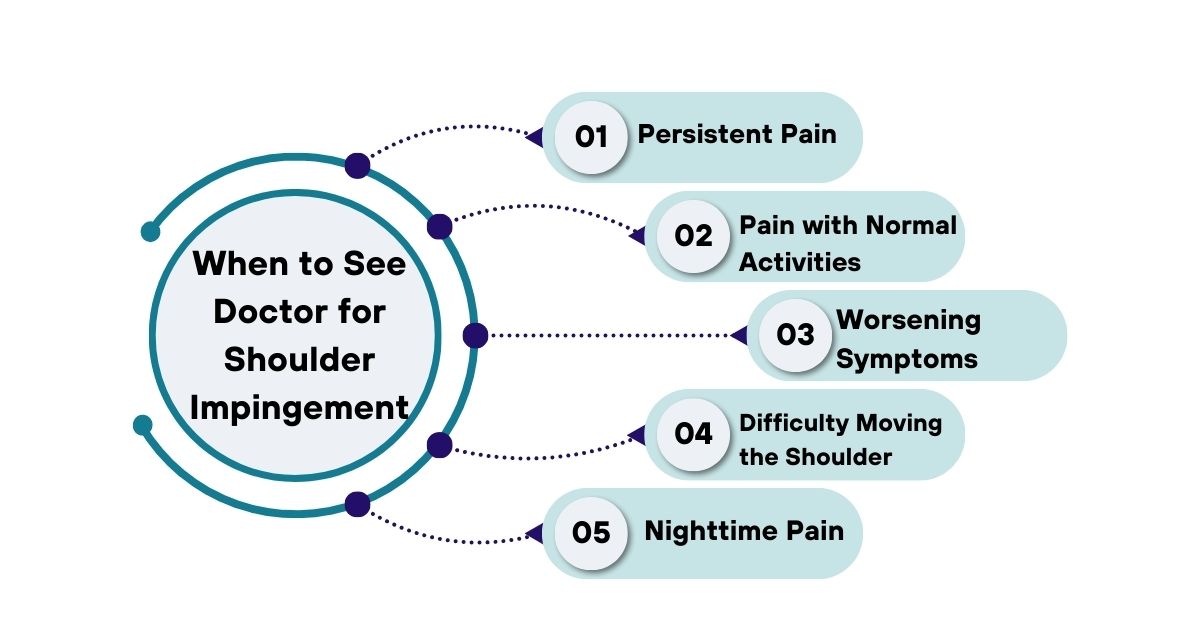
- Persistent Pain: If your shoulder pain lasts for more than a few days or weeks and does not improve with rest, it’s important to seek medical attention.
- Pain with Normal Activities: When shoulder pain prevents you from performing routine tasks, such as brushing your hair, driving, or lifting grocery bags, a doctor’s visit is necessary.
- Worsening Symptoms: If your symptoms worsen over time, it may indicate that the condition is progressing and that you may need intervention to prevent further damage to the shoulder.
- Difficulty Moving the Shoulder: If you notice a significant reduction in the range of motion or if you cannot raise your arm overhead without pain, seeking treatment can help prevent further stiffness and immobility.
- Nighttime Pain: A doctor should evaluate persistent pain at night or trouble sleeping due to shoulder discomfort, as it could signal impingement or other shoulder issues.
Doctor’s Expertise: Dr. Chintan Vinod Desai
Dr. Chintan Vinod Desai is a consulting Shoulder Surgeon based in Mumbai. He specializing in shoulder conditions such as impingement, instability, frozen shoulder, rotator cuff tears, shoulder arthritis, and calcific tendonitis. With extensive experience in the latest and most effective techniques in shoulder surgery, commits to providing personalized care to help patients regain mobility. His expertise in treating various shoulder ailments, combined with a patient-centered approach, makes him a trusted name in shoulder care in Mumbai.
Common Treatments
If you’ve been diagnosed with shoulder impingement, various treatment options are available depending on the severity of the condition. These treatments aim to reduce inflammation, relieve pain, and restore normal movement to the shoulder joint.
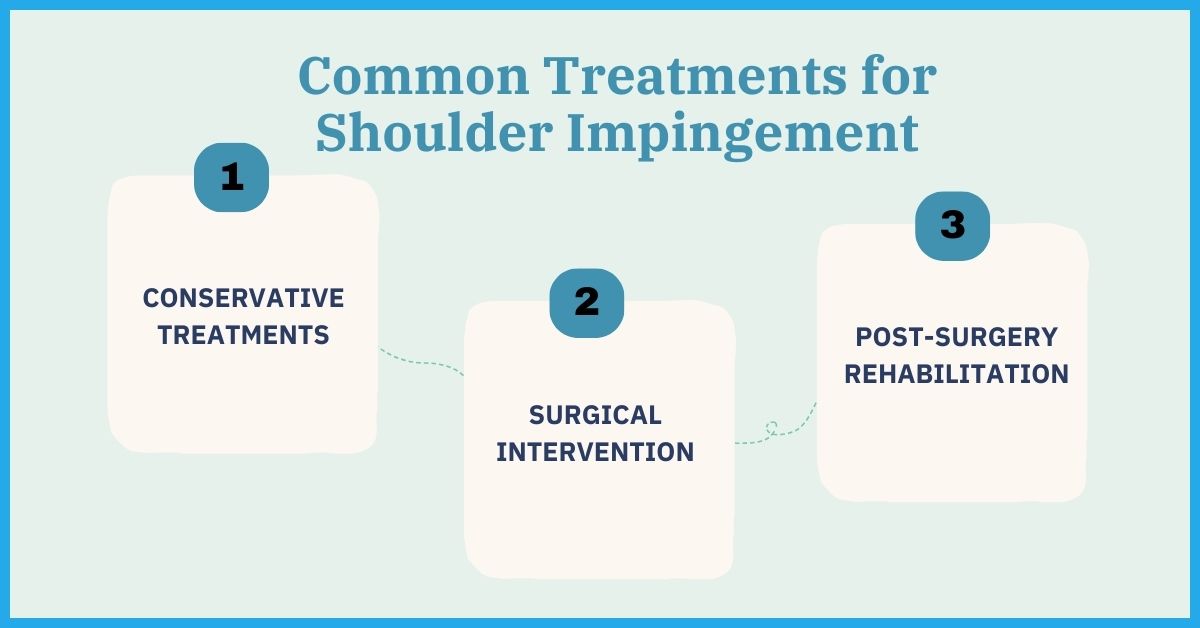
- Conservative Treatments
For many patients, conservative treatments such as physical therapy, rest, ice application, and anti-inflammatory medications are sufficient to manage it. Physical therapy focuses on strengthening the shoulder muscles, improving flexibility, and reducing pain. In some cases, corticosteroid injections may also be used to reduce inflammation. - Surgical Intervention
If conservative treatments don’t provide relief, surgery may be necessary. The most common surgical procedure for shoulder impingement is called subacromial decompression. It involves removing the part of the acromion (the top part of the shoulder blade) that is causing the impingement. In more severe cases, a rotator cuff repair may be required if there is a tear in the tendon. - Post-Surgery Rehabilitation
After surgery, rehabilitation is crucial for restoring strength and flexibility to the shoulder. This may involve physical therapy and a gradual return to normal activities. Following the doctor’s instructions and attending physical therapy sessions is vital to achieve the best outcome.
FAQs
- What causes shoulder impingement?
Shoulder impingement is typically caused by the narrowing of the space between the acromion and the rotator cuff tendons, which results in compression and irritation. Repetitive overhead motions, poor posture, and aging can all contribute to the condition. - Can shoulder impingement heal on its own?
In mild cases, shoulder impingement may improve with rest, physical therapy, and lifestyle modifications. However, if the condition persists or worsens, medical intervention is necessary. - How long does it take to recover from shoulder impingement?
Recovery time varies depending on the severity of the condition and the chosen treatment. Non-surgical treatments may take several weeks to a few months, while recovery from surgery can take 4-6 months, depending on the procedure. - Are there any exercises to avoid with shoulder impingement?
It’s important to avoid exercises that aggravate the shoulder, such as overhead lifting or heavy shoulder presses. Your doctor or physical therapist will guide you on safe exercises to improve shoulder mobility and strength. - Can shoulder impingement lead to a rotator cuff tear?
Yes, if left untreated, shoulder impingement can cause damage to the rotator cuff tendons, potentially leading to tears. Early diagnosis and treatment can prevent this from happening.
Conclusion
Shoulder impingement is a condition that, if addressed early, can be managed effectively with non-surgical treatments. However, ignoring the symptoms or delaying treatment can lead to more severe complications. If you experience persistent shoulder pain, limited mobility, or difficulty performing everyday tasks, it’s important to seek professional help. With the expertise of specialists like Dr. Chintan Vinod Desai, you can explore the best treatment options for your condition. Don’t let shoulder pain hold you back—take the first step towards recovery today.


